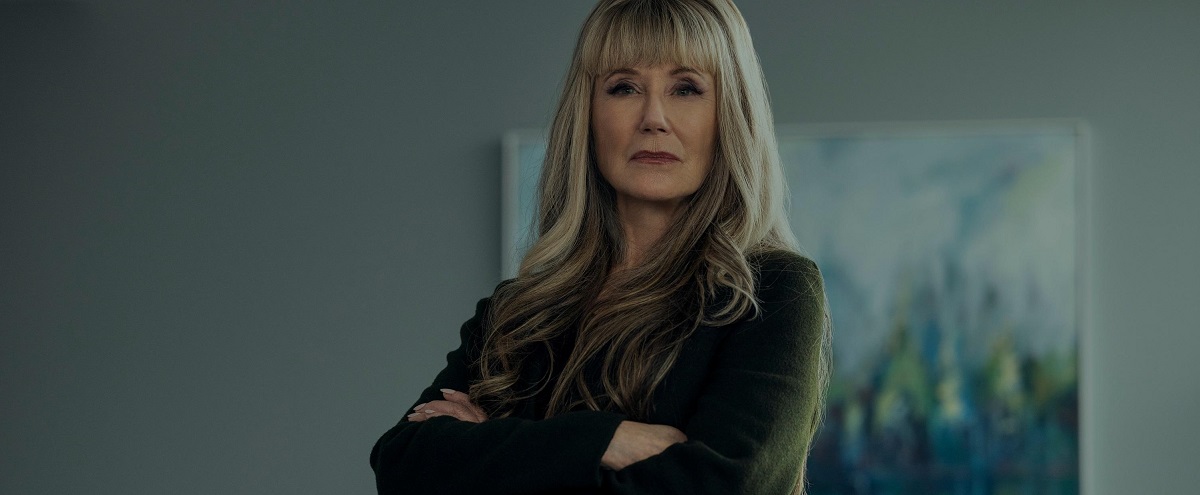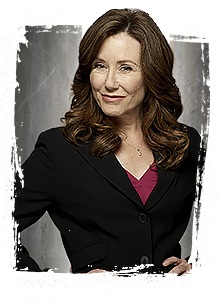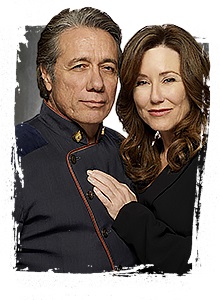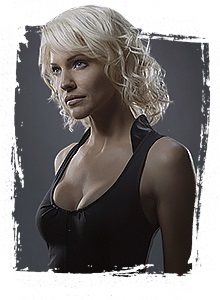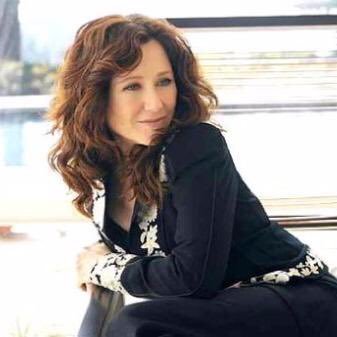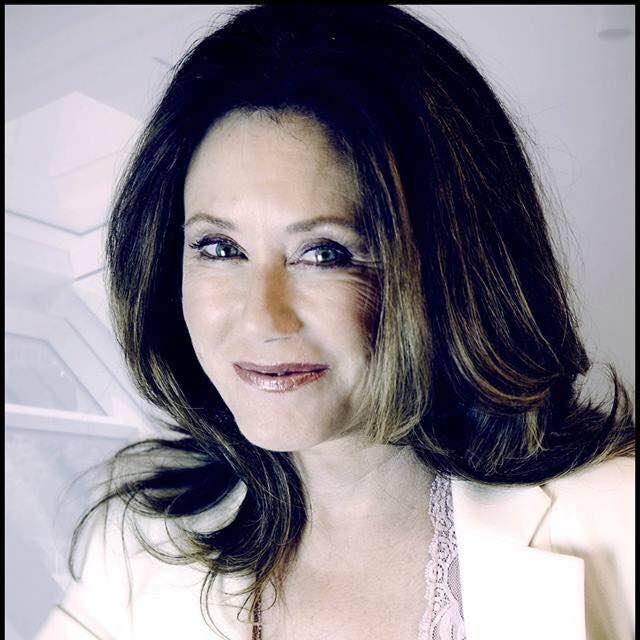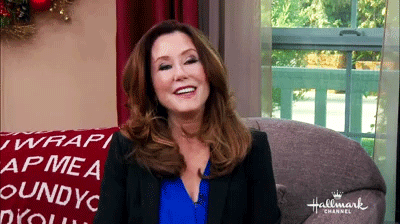
‘Major Crimes’ Team Reflects on Sharon’s Evolution, Differentiating From ‘The Closer’
Danielle Turchiano
December 15, 2017
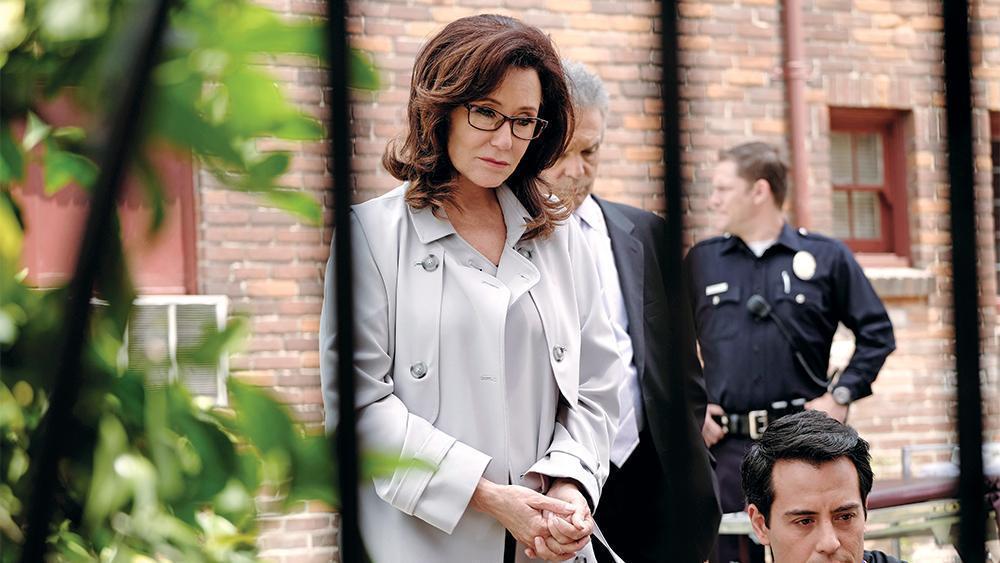
Spoiler alert: Do not read unless you have watched “Conspiracy Theory Part 4,” the second of two “Major Crimes” episodes that aired on TNT Tuesday, Dec. 19.
A shocking event occurred in the ninth episode of the final season of “Major Crimes”: The squad’s intrepid and dedicated leader, Sharon Raydor, who had been battling a health problem all season, died.
In the interview below, Mary McDonnell, who has played Raydor on the TNT drama for six seasons (and who appeared on “The Closer” before “Major Crimes” was spun off that successful procedural), talks about shooting that episode — and why the show’s creative team chose to kill off her character.
What was the last scene from “Major Crimes” that you actually shot?
The last scene that I shot was Sharon Raydor’s last moments.
When she’s interrogating the woman and then she collapses?
Yes, that was the last thing.
Do you want to talk about that?
It was very difficult physically to go through that, and also it was very upsetting to the people in the room. It was very upsetting to the cameramen who I’d been with for on and off eight years now — and to the crew, the sound person, the boom guy, everybody who is in that room when you go through these moments. Not only was it the end of Sharon Raydor, who they contributed to, who they made happen, who they stood by during the transition [from “The Closer”] and really supported. But it was also my goodbye, and we were all very attached. So it was a difficult scene, and I wanted to get it over with quickly. It took a little bit longer, because it was tricky to figure out the CPR of it all. I just found it very unpleasant, and also necessary, and then it was done. It was kind of shocking, actually.
Was it a surreal experience to leave the set that day and then just not be there anymore? Was that an adjustment?
It was a big adjustment. It does become a family, and you do become siblings. I will always love this group of hundreds of people who work on this show. There was me processing the end — “They’re going on, but I’m not.” And then there was also me processing [the character’s end]. It was letting Sharon slowly relax in me, and letting other parts of me that weren’t useful in Sharon return. I was feeling that while experiencing being left out, and also experiencing a great feeling of fulfillment, because she was completed in what I thought was a really wonderful way.
I had a lot of prep for this. Quite often on television, the actor who is leaving a show or dying in a show doesn’t find out until pretty late in the game, and that was not the case with me. James and Mike [executive producer Michael M. Robin] sat me down early on in the season, and we talked the whole thing through.
Can you walk me through that process?
We all saw clearly that we weren’t really getting 100% support from TNT. The writing was on the wall, so it seemed that this would probably be our last season. First of all, we were moved from our famous Monday night slot, and then we were taken out of our very successful summer season run. Our [ratings] numbers were so strong, and then we were taken out of those spots, and then [we were told the season] would premiere on Halloween.
So if you are looking at all of these things lined up, and you’re a showrunner and an executive producer, you start to come to the conclusion that you’re reaching the end. So there was a decision to be made — did [executive producer and creator] James [Duff], after creating this franchise, want it to be ended by TNT [possibly after the sixth season aired]? Which is their right to do. James started to lean into the idea of being able to write out this show in a way that he felt was gratifying and would be gratifying to the fans. It became clearer and clearer as we got closer that it probably was going to be the end, and so he leaned into that ending for Sharon. James included me in his creative thinking all the way through. It was tough to know that that might happen, but I was grateful to not be shocked by it. So I felt very respected in that sense.
So James and you started talking about this…
When we began shooting what became the final season, in March or April. It was feeling to him like it might be the last season, and he was thinking about different ways to go about it and what that might involve that for Sharon. He was definitely going to introduce a dilemma for her, which obviously was this health issue. He did fill me in right at the very beginning of the season that [Sharon might die]. He wanted to creatively give the show its full due, and that might include Sharon’s ending. I understood what he was talking about as an artist — for himself and for the fans, he wanted to have some control over how the show ended and what kind of story he brought to his final season.
Did you know that episode nine would contain Sharon’s death?
Only when we were getting close to it. I did not know if it would be in the very last episode [of the series], but he did imply that if [she did die], it might be earlier than the last episode, to give the final episodes an opportunity to deal with that. James and Mike really did want to make sure that I understood [how it would transpire]. And might I say one more thing? There was no phone call from our studio or network talking about renegotiating, and my contract was up, so to me as well and to my reps, it was pretty clear that we were going out. It was not a surprise for me at all when they canceled the show. I don’t think it was a surprise for anyone, was it?
Well, one thing that’s interesting is that the ratings were still good.
I know, but I honestly… We struggled with that [fact] all along. There’s a lack of logic in that. You just kind of go, “How can this be the choice you’re making, because the numbers are high?” I do think that this happens now in the industry — and it isn’t just TNT — as we transform into different platforms and to different ways of creating audiences, it is no longer the only ingredient for how you’re evaluating what it is you want to do. Kevin Reilly [TBS/TNT president and chief creative officer for Turner Entertainment] was in the process of creating his particular vision, and for whatever reason, our actual live numbers weren’t a strong enough factor in his envisioning. That’s the only way I can see it. I’m not a studio executive. I don’t know.
Stepping back a little bit, when you heard that “Major Crimes” was being spun off from “The Closer,” what were your expectations and hopes?
Well, it was a very unclear what was going to happen, partly because it was a spinning off, but also, it wasn’t a spinning off of a character into a new show. It was a spinning off of an entire show, minus one person. It was a little tricky at the beginning. Sharon Raydor was a character people loved to hate, and then she was put at the center of a show where it wasn’t going to quite work for her to be the antagonist.
[Part of the reason the show worked was because] the characters actually are ethical human beings. They’re good souls. They’re good people, and they’re quirky and they’re not perfect, but they’re not dysfunctional cops. [There’s room for and we need stories about] dysfunctional law enforcement people. That’s not who James writes about. He writes about humans that are delightful and charming and good. So he had to figure out how to turn Sharon Raydor around, so that people could fuse with her at the center of the show as someone that they trusted and liked. I thought he did it really successfully.
The fans were great. They loved James’s writing. They loved those characters. They were going to go anywhere with them. I have really deep feelings about the faithfulness and devotion of these fans, and I respect them. I think they’re smart. I think they are funny. I think that they stayed true. During the transition, they made leaps of faith with us and they supported the show, and it was because of them that we were able to stay on as long as we did, because we didn’t really have a lot of else going on out there in terms of support. I just feel tremendous gratitude for them.
What was it like shooting those last scenes?
There were these really tender moments that, and as I was shooting them, I thought to myself, “Well, Sharon doesn’t know what’s going to happen.” [However as viewers saw, Sharon did realize within the episode that she had to go on a health leave.] When you are leaving one reality, which she was, to go into another one — “What’s going to happen to me now? I can’t go to work. I’ve got to deal with this other thing,” you do have a sensation of, “I better make sure I look people in the eye. I better make sure I say, ‘Do you know I love you?’ to people.” That was the kind of feeling that Sharon was having.
For me, it could have gone all haywire had I not been disciplined. I would have cried through the whole thing, because I knew it was the end. Sharon didn’t. [If my performance had been] schmaltzy, they would have had to cut that out, and I would have wasted everyone’s money. So it was a case of me being as disciplined as absolutely possible. But the subtlety of those brief encounters with Andy, with Provenza, with Rusty — those were the things that I cherished, because they were so human.
When you think back on “Major Crimes,” what do you think its legacy is?
I think “Major Crimes” has an outstanding respect for the law, for the justice system, the way it works for us — and the way it works against us. I met a lot of amazing people through “Major Crimes,” both in the L.A. County sheriff’s office and in the L.A.P.D. I learned a great deal of respect for people who try to do that job well and risk their lives every day.
What did you learn about yourself during the filming of “Major Crimes” that you will carry forward with you?
As an actress, I learned something about the relationship to constant memorization and how a writer allows his or her writing to support you in that process. James and his staff found ways to integrate some of the exposition into character and make it more natural. I have a whole new view of the [factors that lead to the] success of procedural television shows that I did not understand before.
I also rediscovered things that are still very vibrant and alive in me that I learned as a young Catholic girl. There was a bottom line of faith that Sharon demanded I explore in myself, and I was very, very, very pleased to get back in there.
It was such an evocative scene when she was in the church and asked for Last Rites.
I thought that too. I thought it was a great piece of writing, because it was absolutely Sharon Raydor. She controlled her destiny to the last second. She decided that she felt it was time to go through the Last Rites sacrament, and she asked her friend to do it for her. It’s a very unusual woman who does that. Sharon — her morality, her ethics — all of that was just so alive for her until the end of her life. I learned something about the type of person who doesn’t just let life take them — not until they make sure that whatever’s left behind is ordered and moral and correct. I’m a little more chaotic than that. I’m a little more spontaneous.
No spoilers, please — but did you get the last four scripts? Do you know what happens in the next episodes?
I do.
So how are you feeling about the final season of “Major Crimes” and the ending of Sharon Raydor’s story?
I feel that it was done beautifully and respectfully, and I think that it will be quite gratifying. I honestly feel like what James has done has been done with the fans in mind, and with the idea of wanting to go through something with them, as opposed to putting them through something that wouldn’t satisfy them at the end. I think that what James felt very strongly when he envisioned how this would go is — he wanted fans to be able to feel and grieve the end of this beautiful franchise together, collectively. I think he succeeded, and I feel very proud of it.
Sharon did go out on the job dying at work. Does it feel like she went out in the line of duty to you?
Oh, absolutely. We don’t always know, any of us really, when and how this will go. She was very clear that she was on to something [in the case she was working on] and she had to address it and addressed it before she left. She prayed, she turned over [the health situation to God], and she finished [her case]. She did go out in the line of duty, but she didn’t go out with a gun in her hand, pointed at someone’s face.
In the long run, I was happy about [where it happened] because she went out wrapped inside of what she loved. She was doing what she loved to do, which was get to justice for a victim, and she was in her favorite place, which was the Major Crimes headquarters, in her office. She went out inside of her strong feeling of happiness, her love for the people around her, and her faith in God. Honestly, you can’t ask for much more than that.
